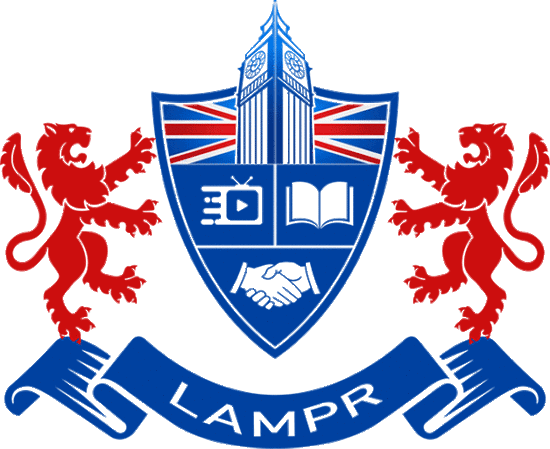Course Description
Public Relations Department Management Course: Advanced Course 2025
Public relations departments are one of the most expanding departments in the majority of ministries, institutions, and companies due to the increasing role of public relations and its positive impact on the power and increasing influence of the institution and its good communication with the media.
The management of public relations departments is one of the skills that a successful manager should be characterized by because public relations management requires some privacy due to the nature of its dealings with departments outside the institution or ministry, its proximity to decision-making centres, and media centres, and its close attachment to the name and reputation of the institution or ministry.
In this distinguished management course at the London Academy of Media and Public Relations, trainees will gain the best management experience in this field in a way that makes them more specialized, broader-minded, and more comprehensive in their knowledge of all the details of the administrative work of public relations.
The objective of the Public Relations Department Management Course Advanced Course 2025
The course aims to provide the trainee with the opportunity to get the most benefit from the administrative skills necessary to manage the departments of public relations and to enable him to have the opportunity to become a successful administrator with a distinctive certificate. The course also aims to
• Identify and evaluate the status of contemporary institutions and organizations, in particular in the field of public relations.
• Provide participants with the characteristics of public relations workers and help them acquire their most prominent skills.
• Identify the specifications of the work environment for public relations and the methods of establishing them.
• Acquire creative thinking skills with the concept and mechanism of strategy to support the competitiveness of organizations using knowledge management.
• Equipping with the skills to measure the efficiency of the current work environment, the methods of its development and the prospects for its growth and transfer to global levels to achieve its objectives.
• Identify the most prominent modern trends in the field of public relations and the industry's skills to communicate effectively with the public.
• Acquire the characteristics of a global practitioner and international expert in the public relations profession through the study of international best practices.
• To achieve its goals, it must be equipped with the ability to assess the efficiency of the current work environment, methods of development, and prospects for growth and transfer to global levels.
• Innovative thinking with a strategic concept and discovering the leadership skills of your team and providing the characteristics of enhancing the positive ones and developing the negative ones.
• Identify the specifications of international leadership for the targeted media environment through the Knowledge Portal and its good management.
Activities and Training Methods
• Training lecture
• practical applications
• Panel Discussions
• Practical applications
Topics of Public Relations Department Management Course, Advanced Course 2025
1. Modern Trends in PR Characteristics
2. The specificity of the role of public relations in the formation of social awareness
3. How to employ the sociology of the communicator
4. Current and future communication trends
5. The role of public relations in the modern era
6. The managerial and philosophical concept of successful public relations.
7. responsibilities and functions of public relations.
8. media techniques that express creativity and innovative thinking.
9. Media innovation skills in mass awareness and guidance
10. Media and Communication Arts for Public Relations Workers
11. Characteristics of public relations practitioners
12. formulate a positive image of the institution and how to gain the ability to influence the masses.
13. highlighting the tasks of public relations and the factors influencing them and the methods of dealing with them.
14. The role of the degree of job satisfaction in stimulating motivation and achieving goals
15. Optimal communication recruitment skills to acquire critical and hostile customers.
16. Research strategies, information collection, data analysis, and good utilization.
17. skills and characteristics of media planning, training, and methods of measuring the return from it.
18. elements of the desired public relations environment.
19. Quality strategies organization of public relations departments.
20. advantages of an organization for public relations management.
21. The main elements of the organization of public relations activities
22. The special strategy for each of its activities
23. Pros and cons to each strategy and the factors influencing it.
24. Ways to overcome all obstacles and turn them into opportunities.
25. Strategies for selecting employees of the Public Relations Department
26. problem-solving and decision-making strategies.
27. innovative thinking strategy for employees of public relations.
28. The seventeen strategies for managing public relations.
29. What are strategic planning and strategy management, concepts, and levels?
30. How to practice creative thinking strategically
31. The four main axes when you make a strategy for PR management
32. How to recognize strategic issues
33. Who is the team responsible for making the strategy and how to define the role of the Board of Directors?
34. How to define the role and tasks of the strategic planner:
35. Learn about the organizational levels of public relations from a strategic management perspective.
36. How to possess the abilities and skills of strategic thinking and strategic management.
37. Management of knowledge excellence and international leadership.
38. Scientific concepts and data for the emergence of knowledge management thought
39. Theories, approaches, and types of knowledge
40. types, knowledge management processes, and the structuring of institutional work.
41. The challenges of knowledge management and the role of the knowledge manager in turning them into opportunities
42. Scientific steps for knowledge management and methods of change.
43. Knowledge management, economic transformations, and knowledge economy requirements
44. Evaluate the role of knowledge management in the knowledge economy.
45. Modern information technologies in information facilities
46. Communication between knowledge and information management.
47. employing knowledge in the development of skills, abilities, and paths of human cadres
Features
- Airport-to-hotel transfer.
- Coffee breaks.
- Study materials.
- Farewell open buffet.
- London tours, Buses & boats.
- Hotel-to-airport transfer.






